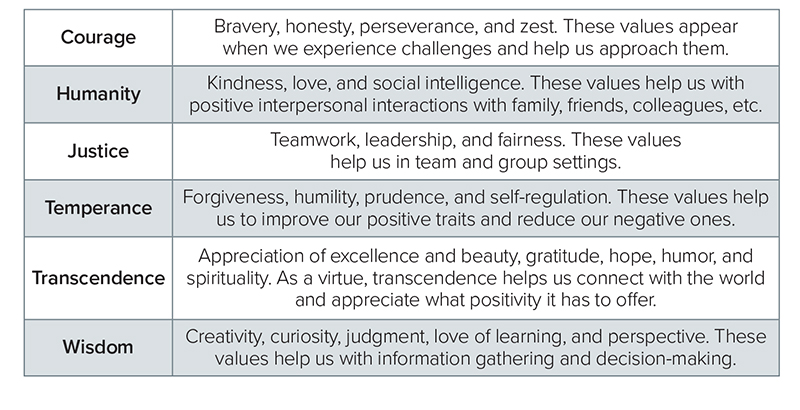Ethics Engaged | Winter 2022
The Quagmire of Quiet Quitting
Quiet quitting may be a consideration for some employees to mentally cope and deal with burnout. However, with so many complexities to think about, the trending practice may do more harm than good for individual, organizational, and global well-being.

Elizabeth Pittelkow Kittner
CFO and Managing Director, Leelyn Smith LLC
Exploring Ethics in Business & Finance Today
Instead of outright quitting, some workers are quitting their attitudes and work effort. Whether it be from disengagement, burnout, or both, workers are gravitating toward doing the minimum work required for their roles through the trending practice known
as “quiet quitting.” While some find the practice harmless (people are still doing their jobs), others find it problematic and unethical. With so many layers to contemplate, it begs the question—is quiet quitting good or bad?
Given the media coverage on this movement so far, most organizations view it as bad, as employees who are quiet quitting are disengaged and not putting in extra effort when extra effort may be needed. For instance, most people can think about a time in
their professional life when extra effort was needed in the short term. For example, a client provided documents late before a deadline, or a project had errors and needed to be revised before a leadership meeting. Quiet quitters, however, may not
be willing to put in that extra effort for any amount of time, even if it is short term.
EXAMINING OUR INDIVIDUAL VALUES AND ETHICS
Let’s say that employees are still able to get their jobs done with minimum effort, is quiet quitting really that bad? To consider this question, let’s look at individual values. One of my favorite values self-assessments can be found through
the VIA Institute on Character. The online assessment can help you determine your value strengths and how they fit into six overall virtues described in the chart below. The idea of knowing and applying your value strengths is that it gives you the
best opportunity for personal flourishing.

Quiet quitting seems to oppose several of these values, including perseverance, zest, kindness, teamwork, leadership, prudence, appreciation of excellence and beauty, curiosity, and love of learning in a work setting. However, one may argue that some
values are supported by quiet quitting, including self-regulation and fairness.
Most people spend a good amount of time at work, so having a job that does not align with personal values and an ability to thrive can be a tough existence. As such, quiet quitting for a long period of time may lead to personal reputational deterioration.
If you are considering quiet quitting, analyze why you feel that way. Determine if you are able to communicate with your supervisor or others on what you need to succeed or if you can communicate ideas on how the organization can improve. If you encounter
resistance to change or experience changes that do not improve your work, then think about looking for another job with an organization that aligns with your values. In most jobs, even the ones that have negative aspects, like repetitive work or tough
work personalities, you can find ways to grow and develop yourself and others around you, even if it is for a short time while you are looking for other opportunities.
While the concept of quiet quitting invites us to examine our individual values, it also leads us to examine our ethical obligations. As accounting professionals, we look to the AICPA Code of Conduct to guide our practice. The AICPA Code of Conduct describes
several Principles of Professional Conduct in section 0.300:
- The Public Interest: “Members should accept the obligation to act in a way that will serve the public interest, honor the public trust, and demonstrate a commitment to professionalism.”
- Integrity: “To maintain and broaden public confidence, members should perform all professional responsibilities with the highest sense of integrity.”
- Due Care: “A member should observe the profession’s technical and ethical standards, strive continually to improve competence and the quality of services, and discharge professional responsibility to the best of the member’s
ability.”
The due care principle also states: “Competence is derived from a synthesis of education and experience. It begins with a mastery of the common body of knowledge required for designation as a certified public accountant. The maintenance of competence
requires a commitment to learning and professional improvement that must continue throughout a member’s professional life. It is a member’s individual responsibility. In all engagements and in all responsibilities, each member should undertake
to achieve a level of competence that will assure that the quality of the member’s services meets the high level of professionalism required by these Principles.”
Based on the review of these principles, doing the minimum may lead to a violation of the AICPA Code of Conduct.
QUIET QUITTING’S IMPACT ON ORGANIZATIONAL, GLOBAL WELL-BEING
In addition to quiet quitting’s impact on individual values and ethics, it also impacts the well-being of the organization and global community. When people care less about their jobs and their organizations, fraud is more likely to occur undetected.
According to the ACFE’s Occupational Fraud 2022: A Report to the Nations, 42% of frauds studied were detected by tips, and more than half of the tips came from employees. Reporting fraud requires people paying attention to what is happening
within an organization and caring enough to report it. Organizations should be concerned when they sense their employees do not care about the work they are doing and/or do not care about the overall organization.
Quiet quitting also lends itself to more mistakes being made by employees and the development of lower quality products since performance and quality are associated with engagement. In fact, according to the Quarterly Census of Employment and Wages administered
by the U.S. Bureau of Labor Statistics, the United States has seen the lowest worker productivity levels since 1948. Since there is a correlation between worker productivity and economic growth, there is a negative impact on the global economy, including
a negative effect on wages.
What may seem like a harmless way for individuals to control their work environments, quiet quitting may be leading to more severe negative impacts for the future of the economy, organizations, and available jobs and pay for individuals.
To reduce these negative impacts, individuals and organizations must do the work to uncover what is behind this growing practice. As an individual, consider how you can make a positive impact on your own work and for others who work with you. As a leader
of an organization, ask employees how you can support them and make some decisions that may prevent further burnout and disengagement, like allowing people to be off video during some meetings, reducing or eliminating noncritical communication during
nonbusiness hours, and increasing praise and celebration for work achieved. Improve engagement by involving people in decisions that affect them and ask employees to contribute more to culture and strategy initiatives.
Related Content:
- Eight Ways to Ethically Deal With Difficult People: You likely have a supervisor, coworker, or client you find challenging. Here are eight ways to navigate difficult relationships without compromising
your ethics.
- The Ethics of ESG Investing: As ESG investing grows in popularity, those looking to invest in purpose-driven organizations should think through the ethical considerations.